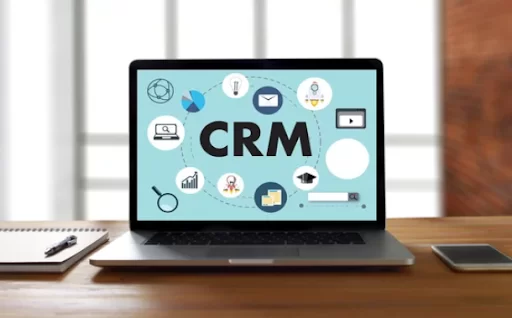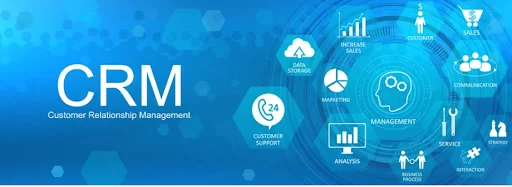CRM or Customer Relationship Management is a business software that helps sales teams manage customer communication. It also allows them to focus on the most valuable opportunities and provide the best customer experience throughout the entire buying process.
Companies often begin their CRM search when their customer communications start to get messy, and by then, they have already lost a substantial amount of sales due to disorganization.
Why is CRM Important?
The following crucial roles are under the role of a CRM, which are necessary for small-scale businesses.
Consolidate Data in One Central Location

CRM puts the customer contacts, communication history, and buying history in one place. This enables everyone at the company to access any information they end up with from a single platform.
Centralizing all the customer data helps the sales representatives track service issues, locate potential clients, and manage marketing campaigns. This would also help the sales team access data much faster, and collaboration would become very smooth, leading to increased productivity.
Sell More and Faster

CRM automates the repetitive admin tasks so that the teams can spend less time on manual data entry. This process is helpful for the team’s productivity as they focus more time on time on their sales. Not only it makes the sales productive and efficient, but also the frequency is quite progressive. The sales team can also build a standardized sales process that shortens the sales cycles by showing the sales representatives exactly what they need to do at each stage to keep their sales moving efficiently.
Stay Focused on Customers

CRM enables the team to stay focused on their customers by having access to information on customer interests and behavior. It makes selling a more personalized experience as sales representatives can anticipate their customers’ needs before reaching out to them. The sales team will also be able to quickly bring in their support and marketing teams to give buyers the right information at the right time.
No Size Limitation

CRM can serve companies of all sizes, from small startups to multinational corporations. It utilizes cloud computing, also called SAS (software as a service), and it stores data on an external remote network that employees can access whenever necessary. Businesses with little technological know-how or resources are drawn to the cloud’s speedy and comparatively simple deployment possibilities.
Understand Important Market Trends

CRM is useful to the sales team as they can observe important trends and understand what to anticipate from their future sales cycle performance. It provides them with automated sales reports and can modify their goals and targets to fit their estimates. CRMs automate operations like contact communication and collaboration, provide efficient assistance to the team’s daily tasks and procedures and allow them to move much more quickly.
Types of Customer Relationship Management

A CRM can be classified into many different types. The majority of CRM software, however, falls into one of the major categories listed below.
Operational CRM

The main purpose of operational CRM is to manage one of the three types of operations: marketing, sales, or service. In terms of lead generation, operational CRM is an important tool because it frequently deals with past customer data, including purchases, marketing campaigns, and customer satisfaction levels. In addition to automating these processes, CRM software also makes it easier for businesses and their customers to interact with each other. With its focus on efficiency, operational CRM is ideal for businesses like e-commerce and business-to-consumer retail that have a short sales cycle and high repeat sales.
Analytical CRM

Customer data is analyzed by analytical CRM in order to gain a better understanding of market trends and customer needs. Analytical CRM improves customer satisfaction by analyzing data. For higher-priced markets with a lot of competition, analytical CRM often utilizes data mining and pattern recognition to achieve this goal.
Collaborative CRM

Collaboration in CRM involves companies sharing customer information with other businesses and companies. Businesses that pool their data can provide their customers with a better experience by gaining access to data they might not otherwise have had. The additional data provides a very detailed picture of what consumers are currently responding to, which is critical for markets that rely heavily on innovation and new products.
Conclusion
CRM helps minimize mistakes and guarantees that all communications are sent to the appropriate recipients at the appropriate time. Helping the sales team find important leads for business acquisition allows them to maximize their revenue through leads and resource management. Thus, the right CRM helps a business focus on customers and unites everyone on the team on a reasonable shared goal.
With our business consulting services, we will assist your business in streamlining its CRM processes.
Feel free to contact our team and we will get back to you as soon as possible.

